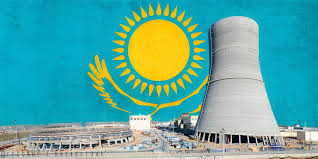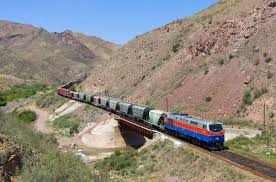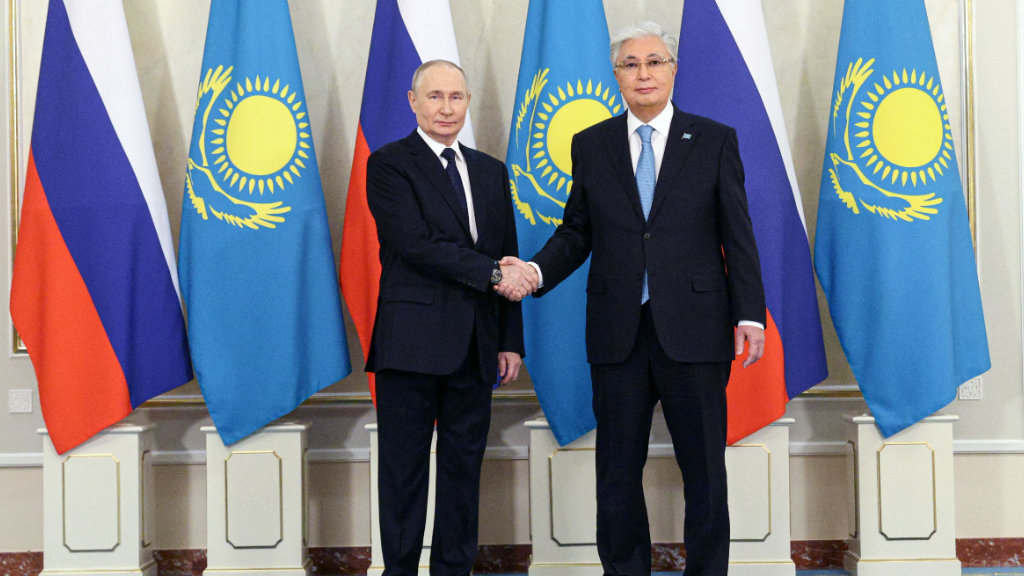The Russian President, Vladimir Putin has been holding bilateral talks with the Kazakh President Kassym-Jomart Tokayev in Astana the last few days as well as attending the annual Collective Security Treaty Organisation (CSTO) multilateral meetings.
Numerous issues were discussed during the bilateral discussions, we highlight these as follows:
Energy Supplies & Transit

Russia and Kazakhstan have discussed the possibility of selling Rosneft’s stake in the Schwedt refinery in Germany so that Kazakhstan can supply crude there directly, as well as pumping more oil from Kazakhstan through the Caspian Pipeline Consortium system and increasing the supply of Russian oil and gas through Kazakhstan to third countries, Russian President Vladimir Putin stated at the end of his visit to Astana.
“We discussed the possibility of increasing the pumping of Kazakh oil through the CPC system to the port of Novorossiysk and the further shipping of Kazakh oil to global markets. But it’s not only Kazakh oil; many foreign companies also operate there. So, one could say it’s oil from Kazakhstan, but it’s still an international product. We also discussed the possibility of establishing new routes for pumping our products, oil and gas, to third countries, primarily to China, including through or across the territory of Kazakhstan. These are very profitable, interesting routes, and promising projects,” Putin said.
Sale of Rosneft’s German stake in Schwedt to Kazakhstan
“The possible sale of Rosneft’s stake in the German refinery, Schwedt, so that Kazakhstan itself could supply oil for processing at the refinery, has been discussed on several occasions,” Putin said. He said this was a matter for negotiations, but the behavior of the German government is unacceptable. “Everything is possible. The only thing that seems unacceptable to us are the methods used against Rosneft by the German government, which looks like nationalization and seizure of assets, sidelining it from management.”
Germany is extending trusteeship over local Rosneft subsidiaries Rosneft Deutschland GmbH and RN Refining & Marketing GmbH for the fourth time. The German government put Rosneft Deutschland GmbH (RDG) and RN Refining & Marketing GmbH (RNRM) into trust management on the basis of an energy security law. Germany’s Federal Network Agency thereby gained control over a subsidiary of Rosneft and its stakes in three oil refineries: PCK Raffinerie (Schwedt), MiRo (Karlsruhe) and Bayernoil (Vohburg). Rosneft Deutschland accounts for about 12% of German oil refining capacity and is one of the largest players in the local fuel market.
Kazakhstan began supplying oil to Germany via the Druzhba pipeline in February 2023. Magzum Mirzagaliyev, then head of oil and gas company KazMunayGas (KMG), said Kazakh oil would be sent to the refinery in Schwedt. Deliveries, carried out in transit through Russia, came to just under 1 million tonnes in 2023; Kazakhstan used its 2024 quota of 1.2 million tonnes in January-October and wants to increase the deliveries to 1.4 million tonnes, then to 2.5 million tonnes in 2025.
However, Germany’s apparent holding of Rosneft assets is complicating the legal issues over actual rights of ownership and the longer term ability for Kazakhstan to legitimately purchase an asset that generates Kazakh energy it wants to be able to sell on to EU consumers.
OPEC Cooperation

Kazakhstan has held talks with OPEC+ co-chair countries Russia and Saudi Arabia, and has declared its full commitment to the latest compensation schedule for oil volumes produced in excess of the alliance’s quota. The talks were held in Astana between Russian Deputy Prime Minister Alexander Novak, Kazakh Energy Minister Almassadam Satkaliyev, and Saudi Arabian Energy Minister Prince Abdulaziz bin Salman, who took part in them online.
The parties emphasized the role of OPEC+ in maintaining stability and balance in the global oil market. Additionally, they noted the importance of cooperation between the alliance member countries and compliance with all obligations established by the agreement, including voluntary production cuts and compensation for overproduction of oil.
Kazakhstan, Russia, and Iraq are among the OPEC+ countries that have exceeded production volumes under the established agreements in the past months. The respective countries have been subject to schedules to compensate for the “non-reduced volumes” since August.
Nuclear Power Plants

The construction of a nuclear power plant (NPP) in Kazakhstan was discussed during bilateral negotiations, and the final decision on contractors will be made by Kazakhstan, Russian President Vladimir Putin, who stated “We devoted considerable attention to this issue during the talks. Naturally, Kazakhstan will carry out its nuclear energy projects and, like any client, has the right to choose the most suitable technological solutions and financial arrangements for itself. If our partners in Kazakhstan need or wish to involve specialists from third countries for joint work, that is also possible. Rosatom has this kind of experience of cooperating with foreign partners. We discussed this yesterday as well. The final decision always rests with the client. But I believe our cooperation with Kazakhstan in this area is entirely possible.”
Rosatom is the world’s largest company in terms of the number of nuclear power plants under construction abroad.
Rail Connectivity

Russian Railways (RZD) and Kazakhstan Temir Zholy (KTZ, Kazakhstan Railways) will create a joint logistics service provider to enhance the efficiency of transport connections along the eastern route of the North-South international transport corridor. RZD said that “The new venture, which will involve RZD Logistics and KTZ Express, aims to attract additional freight volumes, including for transit shipments along the China-Kazakhstan-Russia-Belarus route.”
As part of their strategic collaboration, the companies will evaluate the capacity of key junction points and adjacent rail sections between RZD and KTZ to determine the best ways to optimize their use. They also plan to synchronize infrastructure development and modernization to ensure smooth transport through border crossings between Russia and Kazakhstan. The initiative will continue digitalization efforts, moving towards paperless operations to create a unified digital platform for logistics management.
In addition to this, Kazakh Railways and Russia’s transport and logistics company FinInvest have signed a memorandum of intent to cooperate in developing container shipping and related terminal infrastructure in Astana. FinInvest stated that “The sides are considering building a modern multimodal transport and logistics center in Astana. It will help enhance the transit of Russian cargoes via Kazakhstan. The development of cargo terminal infrastructure will facilitate the creation of a stable international logistics corridor and will give additional impetus to efforts to expand the country’s transit potential.”
The North-South international transport corridor connects northern Europe with the Persian Gulf and Indian Ocean via Russia, the Caucasus and Central Asia.
Agriculture

The Kazakh Senate, the upper house of the country’s parliament, has ratified an agreement with the Eurasian Economic Union (EAEU) aimed at streamlining the issuance and trade of warehouse receipts for agricultural products. The agreement seeks to strengthen agricultural cooperation and facilitate agricultural trade within the EAEU by recognizing warehouse receipts as secure, non-documentary financial instruments, member of the Senate Committee on Agrarian Issues, Environmental Management and Rural Development Zakirzhan Kuziev said.
Under the agreement, warehouse receipts issued in EAEU member states will be mutually recognized and meet the union’s standards. Kuziev said that “Ratification will allow holders of warehouse receipts to secure additional funding by using them as collateral. It will also promote the adoption and use of the Kazakh grain receipt system and create conditions for the growth of e-commerce.”
Warehouse receipts are non-documentary, non-issuable securities that certify the holder’s right to receive agricultural products from a warehouse in the quantity and quality specified at the time of issuance. They also grant the right to demand the fulfillment of obligations secured by collateral. The agreement establishes unified approaches to the circulation and redemption of warehouse receipts, sets requirements for the standard public storage contract, grants warehouses the right to issue warehouse receipts, and defines areas for ensuring state control in this sector. It also outlines the mandatory information that must be included in a warehouse receipt.
The Eurasian Economic Union includes Kazakhstan as well as Russia, Armenia, Belarus, and Kyrgyzstan, filling a geographic space between Eastern Europe and Western China.
Further Reading
Russia – Kazakhstan – CSTO: 2024 Security and Trade Relations – Update & Analysis

 Русский
Русский













